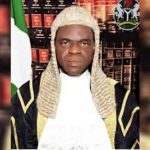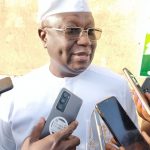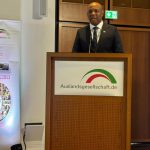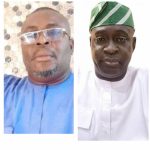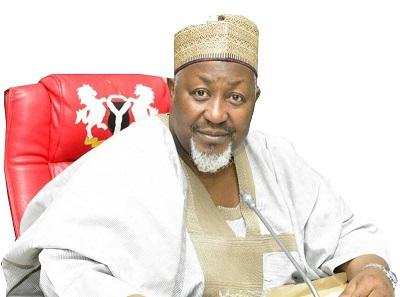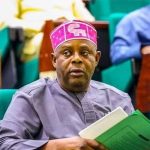JIGAWA:-Another Tinubu’s Minister Begins Rift With his State’s Governor
By Bala Salihu Dawakin kudu.
Northern Bureau Chief
November 24, 2024
In the unfolding drama of Nigerian politics, Badaru Abubakar, the Minister of Defence, has found himself embroiled in a bitter supremacy battle with his successor, Governor Umar Namadi, of Jigawa State. Abubakar, a former two-term governor of the state, was appointed to President Bola Tinubu’s cabinet in 2023, but what was meant to be a harmonious transition has quickly soured into a rivalry with deep political ramifications.
The root of the rift traces back to a key moment early in Namadi’s tenure as governor. The young governor, who many considered to be Abubakar’s political protégé and godson, made a controversial decision regarding the selection of the Speaker for the State House of Assembly. Both men had reportedly agreed on a candidate, but Namadi’s sudden deviation from this agreement was perceived as a direct snub by Abubakar’s loyalists. To them, it felt like a betrayal—a backstabbing that undermined the former governor’s influence and authority in the state.
This breach of trust would soon escalate. As tensions between the two grew, Namadi’s actions further inflamed the situation. He appointed several technocrats as technical assistants, sidelining many of Abubakar’s loyal supporters in the state government. The minister’s camp saw this as another affront, accusing Namadi of disregarding the very people who helped elevate him to power. The perception of disrespect toward Abubakar only fueled the fire, and what had once been a close-knit political relationship began to unravel.
Despite these tensions, Governor Namadi’s camp argued that he had shown ample loyalty to his political godfather in his early years. They believed that it was time for the former governor to step back and allow the younger leader to carve out his own path. However, Abubakar’s supporters, who see the governor’s behavior as disloyal, have grown increasingly vocal in their dissatisfaction, claiming that Namadi has failed to honor the bonds of mentorship and trust that were central to their political alliance.
The situation has only worsened in recent weeks. Minister Abubakar, still a towering figure in Jigawa politics, made a bold move that further exacerbated the tensions. Without consulting Governor Namadi, Abubakar’s camp distributed relief materials to victims of a deadly petrol tanker explosion in the state. This unilateral action was viewed by many as an attempt to undermine the governor’s authority and show that Abubakar still held sway in the state. The snub was hard to ignore, and the rift between the two camps has grown more pronounced as a result.
Observers of Jigawa’s political landscape fear that this battle could have long-lasting consequences for the state and the ruling All Progressives Congress (APC). The feud between the former governor and his successor bears an uncanny resemblance to other political fallouts in Nigeria, notably the rift between former Governor Nyesom Wike and his successor, Siminalayi Fubara, in Rivers State. In both cases, the fractures began over disagreements between a powerful godfather and his political godson, leading to a struggle for dominance and control.
As the rift deepens, the stakes grow higher. The ongoing feud between Badaru Abubakar and Governor Umar Namadi threatens to destabilize the APC’s grip on Jigawa State, especially as the 2027 general elections loom on the horizon. The conflict has already caused significant unrest, with factions within the party taking sides and tensions rising.
At its core, the situation underscores the delicate nature of political succession and the importance of maintaining unity within a party. For Abubakar, a seasoned political figure, this battle is about more than just power—it’s about preserving his legacy and influence in Jigawa, where he governed for two terms. For Namadi, it’s about proving his independence and ability to lead without the looming shadow of his predecessor.
As the feud continues, the eyes of the nation remain fixed on Jigawa State, watching to see if the rivalry between these two political titans will resolve or if it will escalate into a crisis that could reverberate across the APC and the country as a whole.


